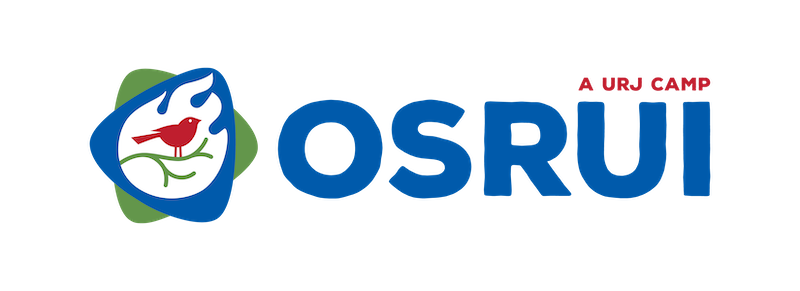On the opening day at Olin Sang Ruby Union Institute, the faculty and staff were told about how at some camps the leaders are instructed to say: “welcome home” rather than “welcome back.” The difference, as we were told, is that at OSRUI, the chanichim (campers), don’t need such a directive. The first words OSRUI chanichim exclaim when they step off the bus are “I’m home!”
As a rabbi of a congregation in the far Northwest Suburbs of Chicago, I know this to be true. Each year at Beth Tikvah Congregation I hold a learning session with my tenth grade Confirmation students and their parents. We begin each session by asking participants: “where do you call home?” Year after year, the most common answer given by our students is “OSRUI is where I call home”.
Were you to ask our students why they consider OSRUI home, they would likely tell you about their close friendships at camp. They might also tell you about all the exciting activities at OSRUI and about how much fun they have at hereI. If pressed, they might mention how incredible the song sessions are or how a particular staff member inspired them. They might even tell you how much they actually enjoy the services here, how they look forward to celebrating Shabbat at camp, and how at OSRUI learning Hebrew and Judaic studies is pretty cool.

For the students of my congregation, I suspect that there is another reason they call OSRUI home as well. Most of the students who live out in the far Northwest Suburbs attend public schools where they are often the only Jewish student either in their class or their entire school. As a result, some have been harassed at school on account of their Jewish identity. Others have, at times, felt left out because they are Jewish, and still others feel like they always have to explain themselves and their religion to others.
At OSRUI, I believe that the feelings of at-home-ness— have much to do with the sense of acceptance and comfort campers feel while spending time with friends who get them and with whom their Jewish identity is celebrated. For many, OSRUI feels like home because it offers connectedness, understanding, friendship and fun.
Now, while all of this is very meaningful to our students, I have a secret to share with you. It’s one you already know: when you send your kids to OSRUI, your kids bring OSRUI to you.
When your kids come back from OSRUI, they bring back to their home congregations pieces of the place they call home. As we have seen at Beth Tikvah Congregation, the love and passion for Judaism that our students develop at OSRUI not only transforms our students as Jews and human beings, it permeates and shapes the tone, culture, rituals, worship, music, and leadership of our entire congregation. One example, of many, is that among our students those who take leadership positions, those who serve as madrichim and teachers, those who stay in religious school through graduation in the 12th grade, are almost always those students who call OSRUI home.
What a tremendous gift to our congregation OSRUI is for it revitalizes and energizes our community in so many ways!
Last Saturday morning during Shabbat services at OSRUI we concluded the book of Numbers. That morning, I taught the chanichim, the refrain that is said when completing a book of the Torah: Chazak Chazak, v’nitchazak. Strength, Strength, may you be strengthened. Today, as I complete my first of two weeks serving as Faculty at OSRUI, I look forward to returning to my home congregation and watching again as our students bring back to our congregation a piece of the OSRUI energy and spirit which invigorates souls and breathes new life into our congregation.
Thank you OSRUI for all you do for Reform Congregations, like mine and so many others!
Chazak, Chazak, v’nitchazek.. Strength, strength, may OSRUI be strengthened. Strength, strength may our children be strengthened and may we all be strengthened through them!
Rabbi Taron Tachman serves on segel in Moshavah and is the rabbi at Congregation Beth Tikvah in Hoffman Estates, IL



